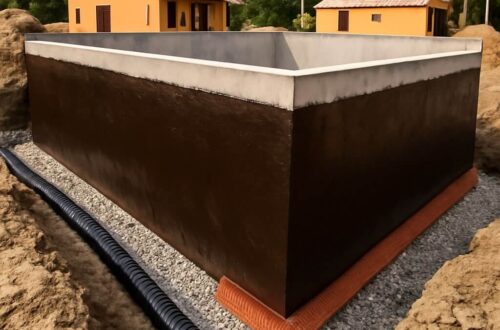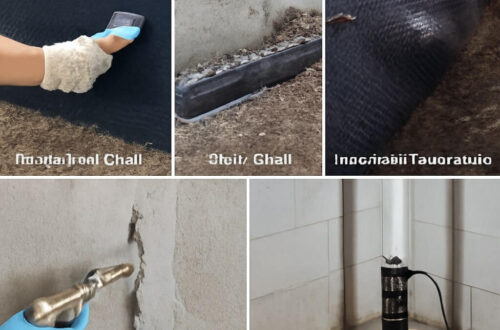If you’re facing issues with basement waterproofing, figuring out how to finance the project can feel intimidating. You have several options to contemplate that can help ease the financial burden. From exploring personal loans to looking into DIY solutions, each choice comes with its own set of advantages. Understanding these can make a significant difference in your approach. Let’s explore some practical tips to help you manage the costs effectively.
Key Takeaways
- Explore personal loans or home equity options for quick access to funds without straining your budget.
- Create a detailed budget to estimate costs accurately and track expenses throughout the waterproofing project.
- Research grants and assistance programs that may help cover costs for home improvements and flood prevention.
- Consider DIY solutions for minor waterproofing tasks to save on labor costs and manage expenses effectively.
- Gather multiple contractor quotes to compare prices and services, ensuring you find the best value for your project.
Explore Financing Options Available to You
When considering basement waterproofing, have you thought about how to finance the project? You’ve got several options to explore.
Personal loan options from banks or credit unions can provide quick cash without tying up your home. Alternatively, if you’ve built up home equity, tapping into that can be a cost-effective solution, often with lower interest rates.
Explore personal loans for quick cash or leverage your home equity for a cost-effective basement waterproofing solution.
Home equity lines of credit (HELOC) allow you to borrow against your home’s value as needed. Evaluate each choice’s terms, interest rates, and repayment plans to find the best fit for your budget and financial situation.
Get your basement protected without breaking the bank!
Create a Detailed Budget for Your Project
Creating a detailed budget for your basement waterproofing project is essential to confirm you stay on track financially. Start with accurate cost estimation, including materials and labor. Consider your material selection carefully; higher quality might mean a higher upfront cost but can save you money in the long run.
| Item | Estimated Cost |
|---|---|
| Materials | $1,500 |
| Labor | $2,000 |
| Contingency | $500 |
Review this budget regularly to adjust for any unforeseen expenses. Staying organized will help guarantee a successful waterproofing project.
Look for Grants and Assistance Programs
Before diving into your basement waterproofing project, it’s wise to explore available grants and assistance programs that can help offset costs.
Many government programs offer financial aid specifically for home improvements aimed at preventing flooding or water damage. Check your local and state resources for assistance that may be available to you.
Community resources, including non-profit organizations, can also provide funding or low-interest loans for such projects.
By taking the time to research these options, you can greatly reduce your out-of-pocket expenses and make your basement waterproofing project more affordable and manageable.
Don’t overlook this valuable financial support!
Consider DIY Solutions to Reduce Costs
Exploring grants and assistance programs can greatly lighten the financial burden of basement waterproofing.
However, you can further reduce costs by considering DIY solutions. There are many DIY methods available that can effectively tackle water issues. For instance, sealing cracks with epoxy or applying waterproof paint can be manageable projects.
Additionally, you can install a sump pump or improve drainage systems using cost-saving techniques. Researching online tutorials and guides can help you gain confidence in your abilities.
Compare Quotes From Different Contractors
When you’re ready to move forward with basement waterproofing, comparing quotes from different contractors is essential for making an informed decision.
Start by gathering at least three quotes to understand the price range and services offered. Pay attention to contractor reputation—read reviews and ask for references to guarantee you’re hiring a reliable professional.
Don’t forget to check the service warranties they provide; a good warranty reflects confidence in their work.
This process not only helps you find the best price but also guarantees you’re choosing a qualified contractor who stands behind their services, giving you peace of mind.
Conclusion
By exploring various financing options, creating a detailed budget, and seeking out grants, you can make basement waterproofing more manageable. Don’t overlook DIY solutions to save money, and always compare quotes from different contractors to guarantee you’re getting the best deal. Taking these steps not only helps you secure funding but also prepares you for unexpected costs, making your basement waterproofing project a success. Start today, and protect your home from water damage!






